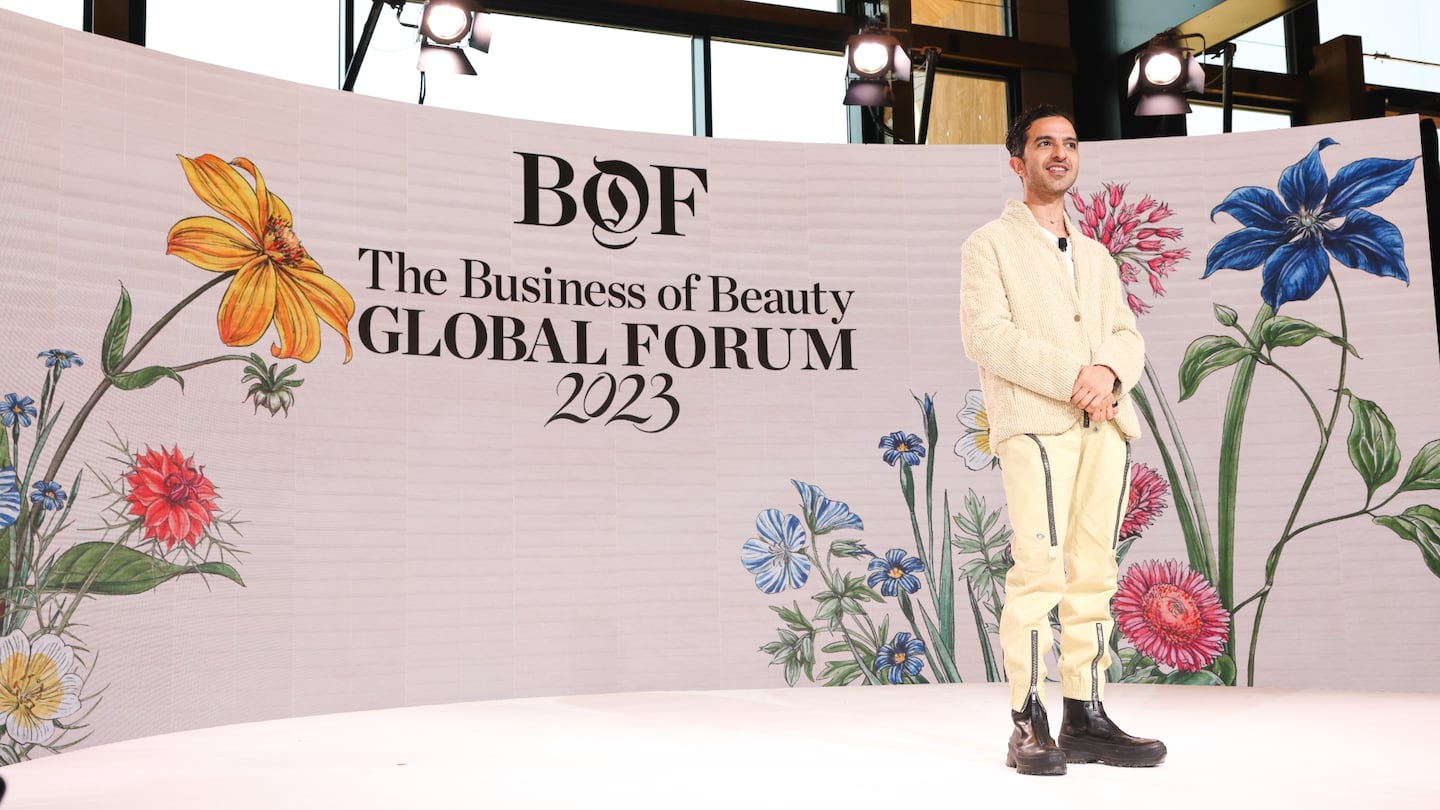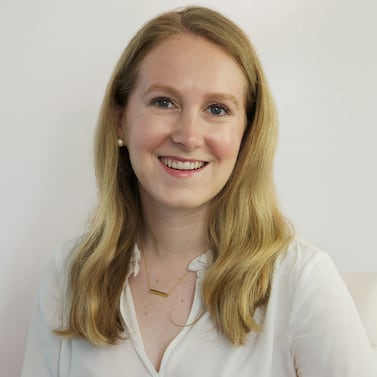
The Business of Fashion
Agenda-setting intelligence, analysis and advice for the global fashion community.

Agenda-setting intelligence, analysis and advice for the global fashion community.

The global beauty industry is a $460 billion behemoth on a turbocharged growth trajectory. But along with that growth has come a swell of change. The number of brands operating in the space has multiplied as independent brands touting community-oriented marketing and product innovation gain market share and advocate for a more inclusive vision about who and what is considered beautiful.
Consumers are seeking more, too. The definition of beauty is evolving, focusing less on covering up so-called flaws and blemishes and more on embracing one’s true self.
At The Business of Fashion’s inaugural The Business of Beauty Global Forum at Stanly Ranch in Napa Valley, California, speakers from across the industry broke down the opportunities and challenges facing the beauty industry today.
During the first session, speakers including Sharareh Siadat, the founder of makeup brand TooD Beauty, educator and trans activist Schuyler Bailar and John Legend, musician and founder of skin care brand Loved01, explored the increasingly expansive idea of what beauty means in 2023 and the importance of truly understanding consumers’ needs and desires, rather than forcing outdated standards onto the market.
Siadat discussed her own struggles with self-image and beauty. Growing up as a person of Persian descent in a small town in Massachusetts, she said she longed to fit in with her blonde-haired, blue-eyed peers and was ashamed of her unibrow, her body hair and other traits that made her feel different.
She spent years, she said, trying to fit in — plucking her unibrow and going by a nickname, Shari. But when she gave birth to her third daughter, who looked just like her, she was forced to reconcile with her insecurities. Now, she wants to empower people to embrace their true selves and redefine their definitions of beauty.
“The face that I was born with is enough, and not just enough: it should be celebrated, it should be normalised and it should be shared and expressed,” she said.
Beauty executives from Brazil, China and the Middle East discussed the intricacies of working in their respective regions, and how brands can successfully enter foreign markets. Though the cultural details in each market differ, all three were united around the same directive: To launch a brand in a new country, you must understand the consumer you’re speaking to and the culture they exist in.
“Establish what you have, build the basics in the proper way and then you can explore the globe. But you need to have understanding of the culture,” said Zaher Dassouky, general manager of the beauty division at Chalhoub Group, the largest retailer and distributor of luxury brands in the Middle East and North Africa.
That means considering what consumers prioritise: Gabby YJ Chen, the global expansion president of Chinese beauty brand Florasis, for example, said that Gen-Z Chinese consumers are enthusiastic about brands and products that support Chinese culture. They’re also more interested in immersive, offline beauty experiences than the country’s robust social-commerce market suggests.
As well, it means thinking about how they shop: Renata Gomide, marketing vice president at the Brazilian beauty company Grupo Boticário, said that door-to-door selling remains a popular sales tactic in Brazil. It’s also about challenging preconceived notions: In the Middle East, consumers are much less conservative than is stereotyped, said Dassouky.
Bailar, a speaker, author and the first openly transgender NCAA Division I swimmer, grew up thinking the beauty industry was evil. His mother, an immigrant from South Korea, felt fetishised by American culture and wanted to make sure her child didn’t feel the same way.
As Bailar grew up, he discovered the many and constantly shifting ways that beauty had a power over his — and everyone else’s — life.
“I spent 27 years in this body but I feel like I have been perceived as several lifetimes worth of people: as woman, as man, as gay, as straight, as Asian, as white, as ‘what even are you,’” he said. “I’ve learned that the way that I look has a very big impact on how people treat me.”
For that reason, he said, the beauty industry should place activism and inclusivity at the centre of its work, in order to protect people’s individuality.
“Beauty is meaningless if we don’t have our people here to experience it together,” he said. “How can we care about beauty without fundamental rights? [We need to] create a world in which all of us — every single person, including those who are undervalued, historically dehumanised — have a place in the beauty industry.”
Sexual wellness has long been a part of the beauty industry, but it hasn’t always been a part of the beauty conversation. When it’s discussed, it’s often via euphemisms and jokes — think blue liquid to symbolise period blood.
A new crop of brands are working to change that. Nadya Okamoto, activist and founder of period products brand August, and Beatrice Dixon, founder of intimate care label The Honey Pot Company, took the stage to discuss how the conversation around menstruation, masturbation, sex and more is evolving.
Both Dixon and Okamoto said they want all people not only to feel comfortable talking about these historically taboo topics but also to be knowledgeable about them — and empowered in their own bodies.
“It took penises and vaginas for us all to be here, so this is nothing we should be squeamish about,” said Dixon. “There should never be a conversation about anything being TMI.”
Musician John Legend entered the beauty sphere as an entrepreneur earlier this year with the debut of his skin care label, Loved01, which is designed for people with melanin-rich skin and created in partnership with brand-building platform A-Frame.
In creating the brand, Legend said he wanted to make sure that the products weren’t just scientifically developed for people with melanin-rich skin but also marketed and priced accordingly so the people who need the product can reasonably access it.
“If we’re claiming to create a product that is addressing an underserved and overlooked community, but we’re making it so a bunch of folks can’t afford it within that community, then what’s the point of it?” he said.
Legend’s line is the latest brand that is working to serve a group of people that has long been ignored or underserved by the beauty industry. Even though talk about the need for more diversity in the industry has grown, Ari Bloom, founder of A-Frame, said there needs to be a greater shift in the demographics at all levels of the industry, from the boardroom to the C-Suite to the venture capital firms that are funding new brands, in order to enact real change.
“We have to start walking the walk at all levels,” said Bloom. “I don’t think we’re doing that yet. We’re talking about it a lot more, which is great, but we have to see more action.”
The Global Forum is made possible in part by our partners Bolt, BeautyUnited, Unilever Prestige, McKinsey & Company, MagicLinks, Cavu and Stanly Ranch.
Special thanks to our Business of Beauty Global Forum Gifting Partners: Summer Fridays, Hourglass, Lo & Sons, Byredo, 111Skin, Dr Dennis Gross, Ambuja Skincare, Augustinus Bader, Dr Loretta, Droplette, Aesop, Kate McLeod, Vacation, Bala Bangles, Hyperice, Veracity, Athletic Greens, Nanushka, Skims, Smythson, Roxie Nafousi, Estée Lauder, Marimekko, Le Labo, GlamSquad, Florasis & Bossy Cosmetics.
BoF’s Imran Amed sits down with Priya Rao, executive editor of The Business of Beauty, to go inside the findings of our new report ‘The State of Fashion: Beauty.’
Join us next week for The Business of Beauty Global Forum 2023 livestream on Tuesday May 30 and Wednesday May 31, available to BoF Professional All-Access and BoF Professional Beauty & Wellness members.

Diana Pearl is News and Features Editor at The Business of Fashion. She is based in New York and drives BoF’s marketing and media coverage.
Landing a retail partnership is often seen as a major milestone for beauty founders — but it brings a bevy of new challenges, from the logistical complexities to setting a marketing budget. Black entrepreneurs, who typically have far less capital to work with, often face tough choices.
The firm has been working on a listing since at least 2022, with previous attempts buffeted by volatile markets.
In a three-part series, The Business of Beauty explores how Black founders Monique Rodriguez, Danessa Myricks and more built, launched and scaled their multi-million-dollar businesses. In part one, a look at how these entrepreneurs found their niche and harnessed early lessons that were critical to their growth
There’s something both innocent and concerning about 13-year-olds’ obsession with skincare. Kids will always want to find new ways to express themselves, but the beauty industry has a responsibility to protect its youngest customers.